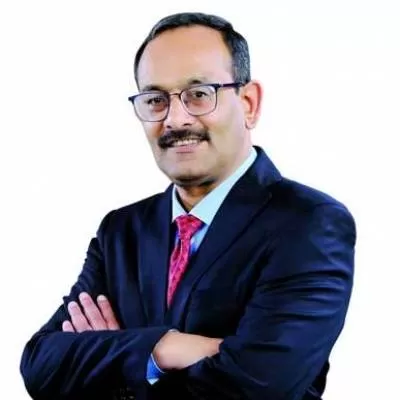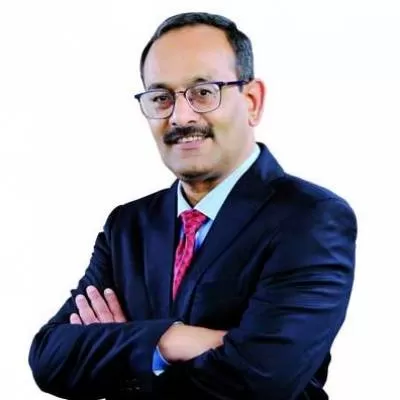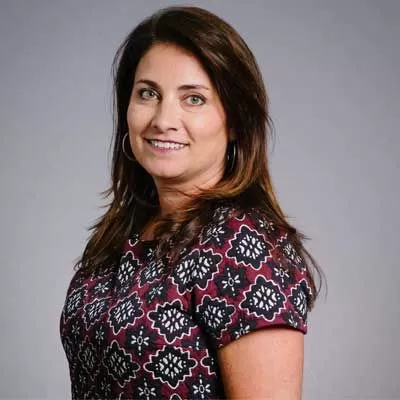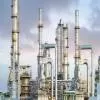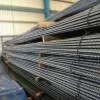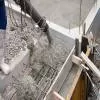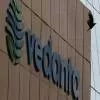- Home
- Technology
- Our technology expertise and strong network provide reliable solutions to customers
Our technology expertise and strong network provide reliable solutions to customers
Siemens is geared to power up in India! After having executed 160 MW of solar projects as EPC globally and over 1,200 MW of equipment supply for solar projects, the group recently forayed into sustainable and innovative EPC solutions for solar photovoltaic (PV) plants in India. Offering customised solutions for solar power plants – sun-to-heat, sun-to-steam, and sun-to-energy – through in-house software, these solutions are designed to meet the profitability, yield and cost expectations of customers; their uniqueness lies in the 'power ratio guarantee'. Prashant Jain, Head-Solar & Hydro, Siemens Ltd, elaborates on the benefits and applications of these solutions in conversation with Shanti Padukone.
What inspired your foray into this sector?
Siemens has been manufacturing modules for over two decades. Our in-house utility scale inverters, switchgear and substations and decades of experience in building, operating and maintaining power plants, all together has encouraged us to foray into the PV EPC segment.
Tell us more about your sustainable and innovative EPC solutions for solar photovoltaic plants in India.
Siemens has been offering PV solutions in the German market for the past 25 years. Two years ago, the EPC Group was formed to bring in additional focus in the German market. In India, we initiated our solar business activities in 2010, when the solar mission occurred in the country. However, it is only since October 2011 that we have got fully active, offering all our services in the country. In the PV industry, we provide three types of system integrators or solutions. The first of these includes the entire EPC, where we provide solutions right from the inception of the project to electricity generation. In the second type, we provide power ratio guarantee for a Siemens-contracted module. The third model is the main EPC where we provide the electrical and overall design of the plant, but guarantee only proper supply of fuel to the plant. These EPC solutions create investment-grade assets for our customers, and can be customised according to the site.
What does the power ratio guarantee entail?
Siemens has detailed methodology agreements with module suppliers for estimating, calculating and demonstrating this power ratio guarantee. Our qualification process is three times more stringent than other modules in the market. One of the major aims is to minimise losses, but it is also concerned with the basic design of the plant. For a plant to have X amount of heat, we design it according to our set power ratio guidelines and then further align it with the financial model. After this, we hand over the module once again to the developer to redesign the plant.
How cost-efficient are these solutions?
PV power plants have to deliver at least the same or better than the promised performance of the plant over a long term. The developer benefits as he gets his returns to easily service debts as well as make profits. Having said that, we at Siemens deliver the most reliable 'levellised cost of electricity' numbers to developers. As we have a strong domestic footprint in India, our offerings are competitive in the multi-MW utility scale PV power plants in the country.
Are you currently working on any projects with respect to these solutions?
At the moment, it is a little premature to comment. However, we currently offer bankable EPC crystalline solutions using modules from global frame agreements with the power ratio guarantee for the plant. As under the state schemes, under the 'national mission', we are at present offering imported thin film module solutions. While the local modules from India are currently under evaluation, the Siemens testing process takes about six months to a year for these modules to qualify for use with our EPC solutions.
How does this lift the company's existing position in this segment?
These solutions compliment Siemens's existing products by offering investment-grade and world-class reliable EPC solutions. Considering our discussions with developers, we have received a positive feedback for these so far, but we are working on a detailed plan before actually offering it to them.
Considering that today's mantra is 'think green, act green', how can conserving energy act as a major contribution from this segment?
Today, a majority of corporate houses are actively seeking means to reduce their carbon footprints, either as a conscious effort to contribute to the environment as a responsible corporate citizen or for business incentives such as lower cost of operations. We, at Siemens, offer one of the world's largest portfolios of environment friendly products that include CleanTech and other building technologies. We are also one of the pioneers in green. Our solutions actively help reduce the carbon footprint.
What are your current estimates of India's solar power segment?
India holds a prominent position in solar power today. The country has set new standards in the solar EPC segment. The massive solar mission has provided a promising start, and the industry will find its course in due time. Our technical expertise and strong network compliment solutions in civil, electrical and project management fields, and thereby provide reliable solutions.
To share your feedback, write in at feedback@ASAPPmedia.com
Prashant Jain, Head-Solar & Hydro, Siemens LtdSiemens is geared to power up in India! After having executed 160 MW of solar projects as EPC globally and over 1,200 MW of equipment supply for solar projects, the group recently forayed into sustainable and innovative EPC solutions for solar photovoltaic (PV) plants in India. Offering customised solutions for solar power plants – sun-to-heat, sun-to-steam, and sun-to-energy – through in-house software, these solutions are designed to meet the profitability, yield and cost expectations of customers; their uniqueness lies in the 'power ratio guarantee'. Prashant Jain, Head-Solar & Hydro, Siemens Ltd, elaborates on the benefits and applications of these solutions in conversation with Shanti Padukone.What inspired your foray into this sector?Siemens has been manufacturing modules for over two decades. Our in-house utility scale inverters, switchgear and substations and decades of experience in building, operating and maintaining power plants, all together has encouraged us to foray into the PV EPC segment.Tell us more about your sustainable and innovative EPC solutions for solar photovoltaic plants in India.Siemens has been offering PV solutions in the German market for the past 25 years. Two years ago, the EPC Group was formed to bring in additional focus in the German market. In India, we initiated our solar business activities in 2010, when the solar mission occurred in the country. However, it is only since October 2011 that we have got fully active, offering all our services in the country. In the PV industry, we provide three types of system integrators or solutions. The first of these includes the entire EPC, where we provide solutions right from the inception of the project to electricity generation. In the second type, we provide power ratio guarantee for a Siemens-contracted module. The third model is the main EPC where we provide the electrical and overall design of the plant, but guarantee only proper supply of fuel to the plant. These EPC solutions create investment-grade assets for our customers, and can be customised according to the site.What does the power ratio guarantee entail?Siemens has detailed methodology agreements with module suppliers for estimating, calculating and demonstrating this power ratio guarantee. Our qualification process is three times more stringent than other modules in the market. One of the major aims is to minimise losses, but it is also concerned with the basic design of the plant. For a plant to have X amount of heat, we design it according to our set power ratio guidelines and then further align it with the financial model. After this, we hand over the module once again to the developer to redesign the plant.How cost-efficient are these solutions?PV power plants have to deliver at least the same or better than the promised performance of the plant over a long term. The developer benefits as he gets his returns to easily service debts as well as make profits. Having said that, we at Siemens deliver the most reliable 'levellised cost of electricity' numbers to developers. As we have a strong domestic footprint in India, our offerings are competitive in the multi-MW utility scale PV power plants in the country.Are you currently working on any projects with respect to these solutions?At the moment, it is a little premature to comment. However, we currently offer bankable EPC crystalline solutions using modules from global frame agreements with the power ratio guarantee for the plant. As under the state schemes, under the 'national mission', we are at present offering imported thin film module solutions. While the local modules from India are currently under evaluation, the Siemens testing process takes about six months to a year for these modules to qualify for use with our EPC solutions.How does this lift the company's existing position in this segment?These solutions compliment Siemens's existing products by offering investment-grade and world-class reliable EPC solutions. Considering our discussions with developers, we have received a positive feedback for these so far, but we are working on a detailed plan before actually offering it to them.Considering that today's mantra is 'think green, act green', how can conserving energy act as a major contribution from this segment?Today, a majority of corporate houses are actively seeking means to reduce their carbon footprints, either as a conscious effort to contribute to the environment as a responsible corporate citizen or for business incentives such as lower cost of operations. We, at Siemens, offer one of the world's largest portfolios of environment friendly products that include CleanTech and other building technologies. We are also one of the pioneers in green. Our solutions actively help reduce the carbon footprint.What are your current estimates of India's solar power segment?India holds a prominent position in solar power today. The country has set new standards in the solar EPC segment. The massive solar mission has provided a promising start, and the industry will find its course in due time. Our technical expertise and strong network compliment solutions in civil, electrical and project management fields, and thereby provide reliable solutions.To share your feedback, write in at feedback@ASAPPmedia.com


